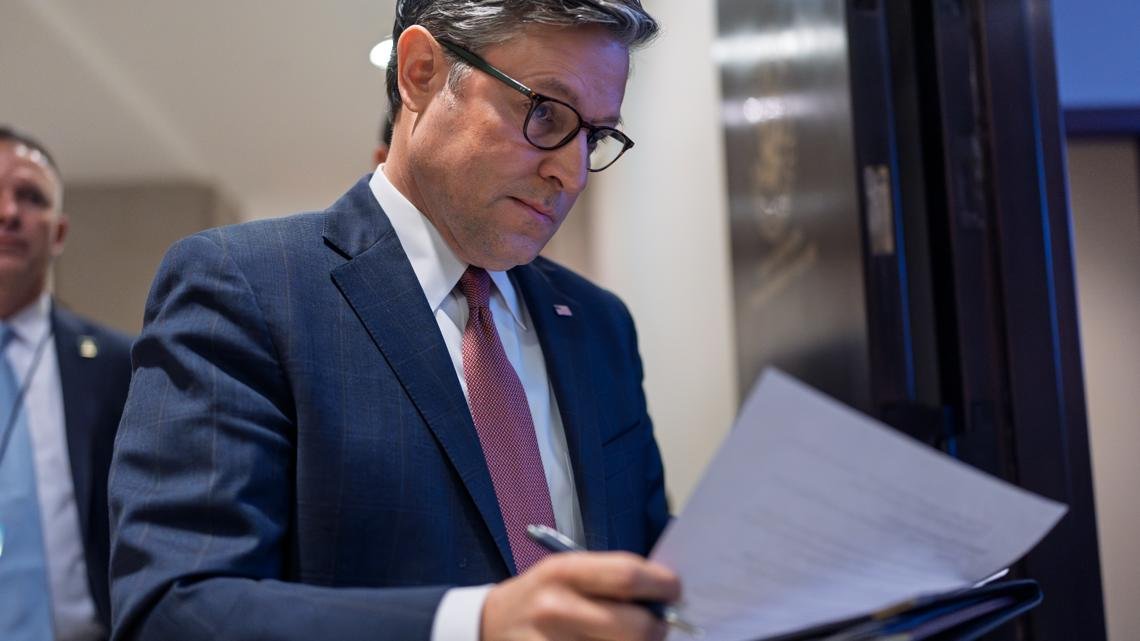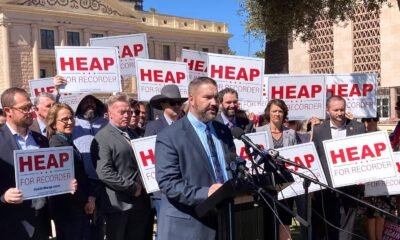cct-tracking
House GOP Advances Bold Budget Resolution, Paving the Way for Trump’s Vision

In a narrow decision, the House of Representatives passed a controversial GOP budget plan aimed at implementing substantial tax cuts and spending reductions. The vote concluded at 217-215, primarily along party lines, highlighting intense divisions within Congress.
Guided by President Donald Trump’s influence, the House Republicans pushed through a budget proposal that envisions $4.5 trillion in tax relief alongside $2 trillion in cuts to various federal programs. Speaker Mike Johnson faced significant pressure, grappling with dissent amongst party members and staunch opposition from Democrats.
Trump actively engaged with lawmakers, making calls to sway hesitant Republicans and inviting them to the White House, emphasizing the importance of this legislative package. Majority Leader Steve Scalise acknowledged the precarious nature of the vote, stating, “It’s that tight.”
The GOP’s plan aims to extend tax breaks initiated during Trump’s first term, which are set to expire soon. It also seeks to address federal spending cuts amid escalating bipartisan tensions.
Significant hurdles remain with the regulatory process; the House will embark on numerous committee hearings before the bill can proceed to the Senate. There, a separate, more restrained version has already emerged. Compounding the situation are looming negotiations to prevent a government shutdown, further complicating the legislative landscape.
As the debate unfolded, Democrats vehemently criticized the GOP budget as detrimental to American families. House Democratic Leader Hakeem Jeffries condemned the proposal, framing it as a threat to the nation’s welfare. His claims resonated with constituents who expressed concerns about potential cuts to programs like Medicaid and food assistance.
Republicans, however, face their own dilemmas. Attempts to reduce federal spending run into the reality that many constituent services rely on these funds. There is rising apprehension within the GOP about the repercussions of proposed cuts, particularly to health care and agricultural support.
While GOP leaders assert that certain programs are not explicitly targeted for reductions, there remains skepticism among party members. Key figures have requested assurances that vital social services will remain intact throughout the legislative process.
As discussions continue, Trump is reportedly meeting other Republican lawmakers to address these concerns, underscoring a divided party. Rep. Mike Lawler emphasized Trump’s commitment to safeguarding Medicaid as part of ongoing negotiations.
Meanwhile, Senate Republicans have initiated their own fiscal proposal. This strategy seems aimed at securing immediate funding for border security efforts, indicating a rift in the party regarding priority legislation.
The GOP majority in the House remains tenuous, rendering Johnson’s leadership critical as he attempts to navigate these complex negotiations. Recent political dynamics indicate that while the party seeks comprehensive reforms, internal discord threatens to undermine these initiatives.
Fiscal responsibility advocates caution that the Republicans’ financial projections may be overly optimistic, particularly in a climate of skyrocketing national debt. Ongoing divisions could hinder effective governance as both parties prepare to vie for support leading into the next electoral cycle.
















